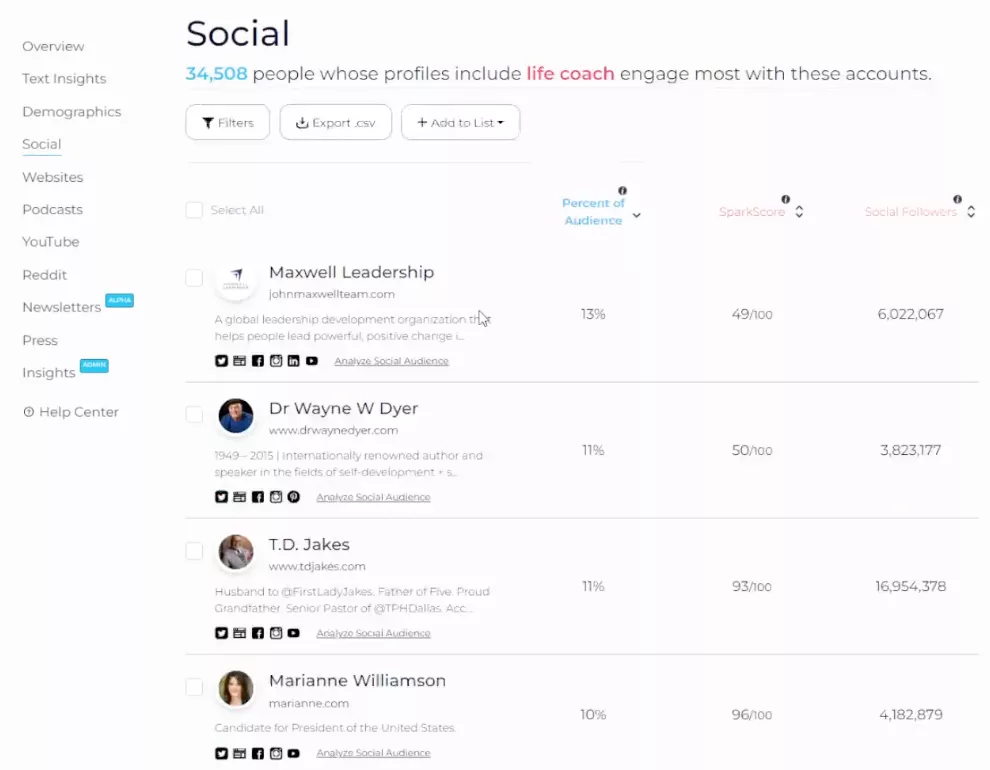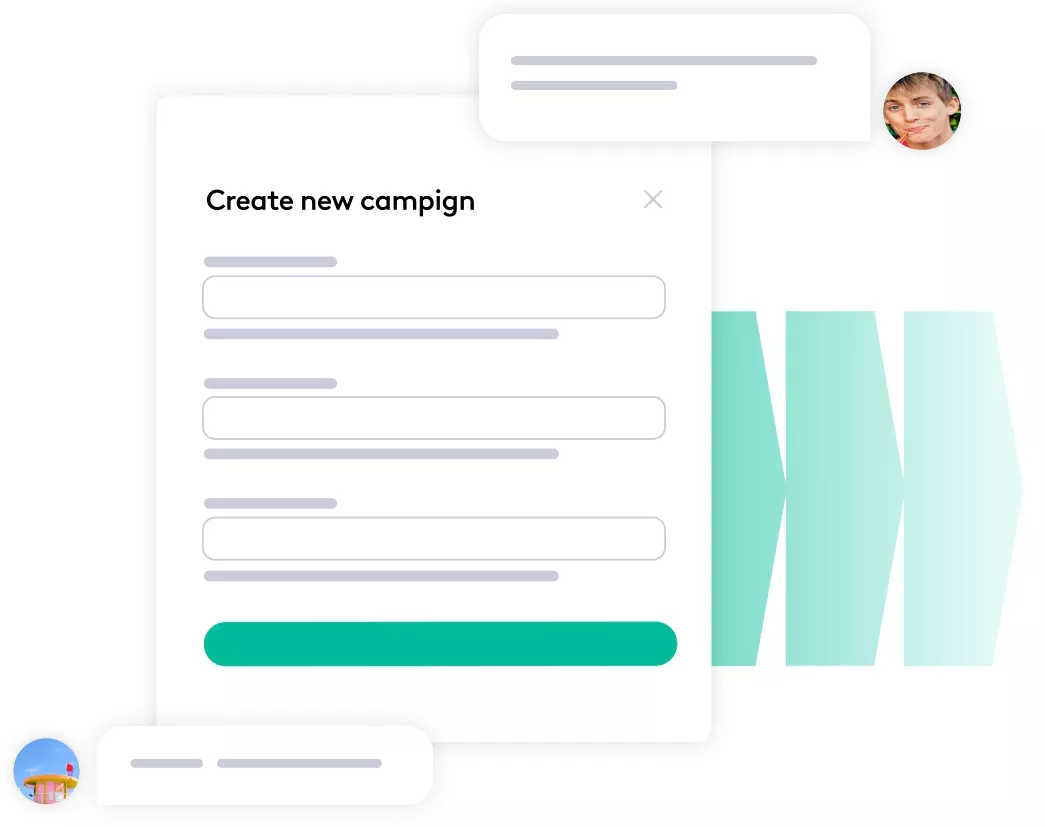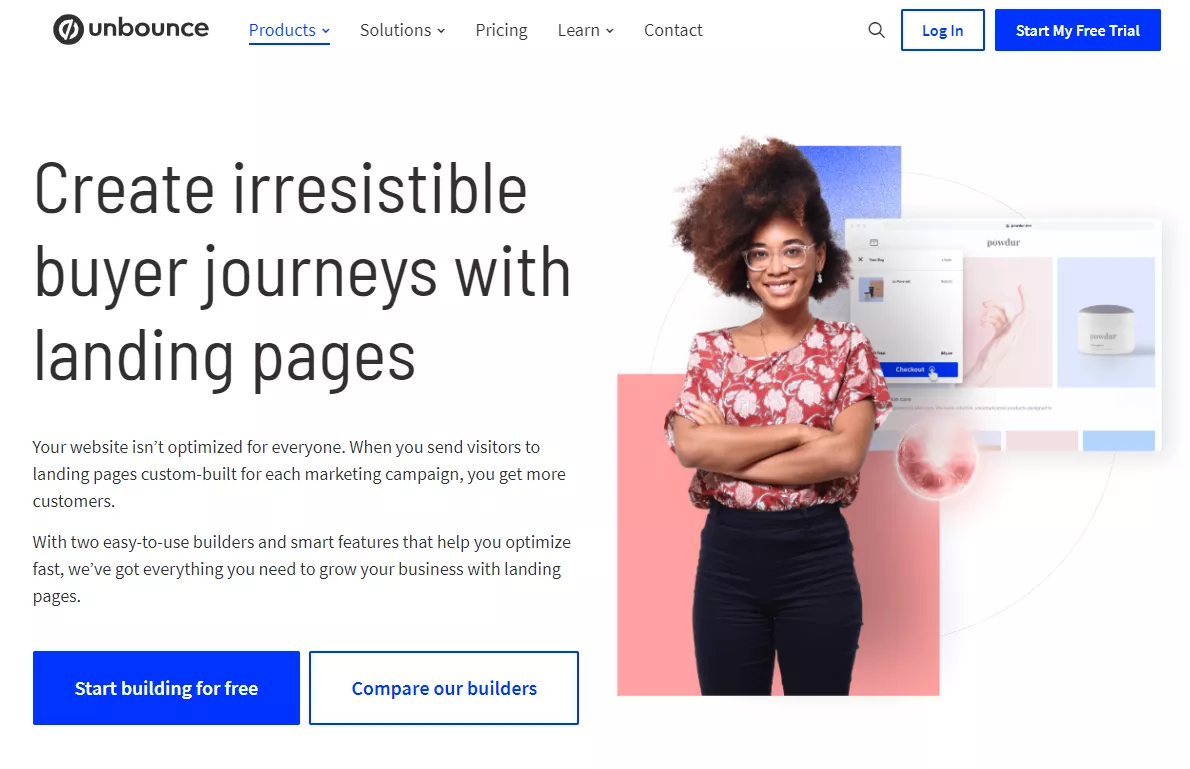5 Things to Do Before Your Next Influencer Marketing Campaign
Recommendations from influencers drive 21% of social media users in the 18-54 years old age group to complete a purchase. That number rises to 32% when only GenZers are considered.
A growing number of consumers are increasingly comfortable leveraging their favorite influencer’s expertise to decide which product will most effectively solve their problems.
As a result, it has become essential for brands to tap into influencer marketing, not only to generate buzz around their products but also to appear more credible and trustworthy.
However, getting started with influencer marketing can be difficult. For example, you need to determine your budget, create a campaign strategy, find the right influencers, etc., which requires careful attention to detail and can be resource-intensive.
In this article, we’ll look at five things that will help you ease into your next (or first) influencer marketing campaign.
#1 Campaign goals and audience
Finalizing your campaign goals will help you determine all the other parameters of your influencer marketing campaign, including the audience you are targeting.
For example, if your goal is to raise awareness, you can focus on audiences that haven’t heard of your brand. Similarly, if your goal is to get more signups or sales, you need to target prospects who are aware of their problem and have an idea of the solution that can help them.
While setting campaign goals, it is better to tangibly define each of them through measurable metrics, as it will help you refine your campaign with time. For instance, if you aim to get more newsletter subscribers, you can set a goal like “500 new subscribers by the end of the quarter.”
After deciding your influencer marketing campaign goal, start creating multiple user personas for your target audiences. This will help you find the right influencers, target the right platforms, and curate engaging messages.
#2 Defined budget
Influencer marketing campaigns can get expensive, even if you are in a niche domain and are partnering with budding internet celebrities.
Apart from financially compensating the influencers, you also need to manage the entire campaign from your end. Engaging with your audience, collaborating with the influencers, finalizing the creatives, and generating performance reports are a few tedious action items that fall into this category.
When tracked improperly, collaborating with influencers to give your brand a boost can make quite a dent in your wallet, particularly if you are a growing business with limited resources. This can also make it difficult for you to pay overhead costs.
Brands need to estimate how much it will cost them in terms of time and human resources to manage the internal operations of the campaign and compensations to the influencers, whether financial or material.
Although determining the internal expenses can be quite straightforward, zeroing in on a narrow range for the influencers’ fees can get difficult. Here, compiling quotes from the potential influencers you are interested in collaborating with can immensely help — which brings us to the next section.
Explore our glossary for key business definitions to strengthen your expertise!
#3 List of potential influencers
Brands need to focus on a variety of parameters, such as audience overlap, values, authority in the niche, etc., before finalizing an influencer to collaborate with. Manually finding such influencers by visiting their profiles and evaluating them can be hectic.
Specialized tools such as SparkToro’s audience research solution simplify this process by returning you a list of influencers for a topic your audience might be interested in, a relevant hashtag, or a YouTube channel they prefer watching. You will get a list of influencers across multiple social media channels, including LinkedIn, X (formerly Twitter), and Instagram, ranked by the percentage of your audience that follows or listens to them.
On top of that, SparkToro will also give you a list of the podcasts your audience tunes into, the trends they follow, the subreddits they are a part of, and the brands they buy from or trust. This can open up more brand collaboration opportunities to help get your word out.
#4 Detailed campaign strategy brief
After deciding which influencers you would like to collaborate with, you need to send relevant campaign details that will help them create the right content for their followers. The campaign strategy brief contains details like messaging, value positioning, tone, content types, goals, etc. that are essential for keeping your influencer partners on the right track.
However, creating such briefs can be challenging if you run multiple campaigns with varied coals with different influencers. Running this process manually can get time-consuming and resource-intensive while increasing the chances of errors.
Specialized tools such as Popular Pays’ BriefAI help brands navigate this roadblock by generating comprehensive influencer marketing campaign briefs with generative artificial intelligence. You just need to enter the campaign details, such as the campaign objective, content types, budget, etc.
Moreover, Popular Pays also allows you to collaborate with influencers as you proceed with the campaign, track their posts’ performance, and generate invoices which further simplify your workflow while managing partner relationships effectively.
#5 Optimized landing page and website
The audience that comes across the posts from your influencer partners isn’t the same as the ones that find you through search engines. Even though they will end up on the same website with identical offerings, their problems and what they seek from you are unique.
Hence, to maximize the ROI of your influencer marketing campaigns, brands need to direct the prospects to a separate, dedicated landing page. The message on that landing page should consider the influencer’s social media post content to provide a personalized experience.
However, creating dedicated landing pages that are optimized for conversion for various influencer-led campaigns can be tough.
Specialized tools such as Unbounce’s landing page builder make it easy for brands by offering templates for various use cases and allowing them to add more functionalities to their page without having to write a line of code.
Additionally, you can leverage its AI features to write convincing copy that your visitors will resonate with. If you have multiple landing pages for the same campaign, the Smart Traffic feature will direct the traffic to the most converting pages for maximizing ROI.
Wrapping up
Collaborating with influencers makes it easier for brands to relay their message more authoritatively and make a lasting impact on the minds of their audience.
However, given the complexity of running a successful influencer campaign and the magnitude of investment, brands need to start on the right foot by defining their campaign objectives, identifying their audience, setting a budget, vetting potential matches, creating comprehensive briefs, and directing the traffic to dedicated landing pages to improve conversions.
The opinion of the author of the guest post may not reflect the position of the editorial board and specialists of Netpeak Agencies Group.
Related Articles
How to Set Up Consent Mode in GA4 on Your Website with Google Tag Manager
Let's explore how to properly integrate consent mode in GA4, configure it for effective data collection, and at the same time comply with GDPR and other legal regulations
Display Advertising Effectiveness Analysis: A Comprehensive Approach to Measuring Its Impact
In this article, I will explain why you shouldn’t underestimate display advertising and how to analyze its impact using Google Analytics 4
Generative Engine Optimization: What Businesses Get From Ranking in SearchGPT
Companies that master SearchGPT SEO and generative engine optimization will capture high-intent traffic from users seeking direct, authoritative answers






